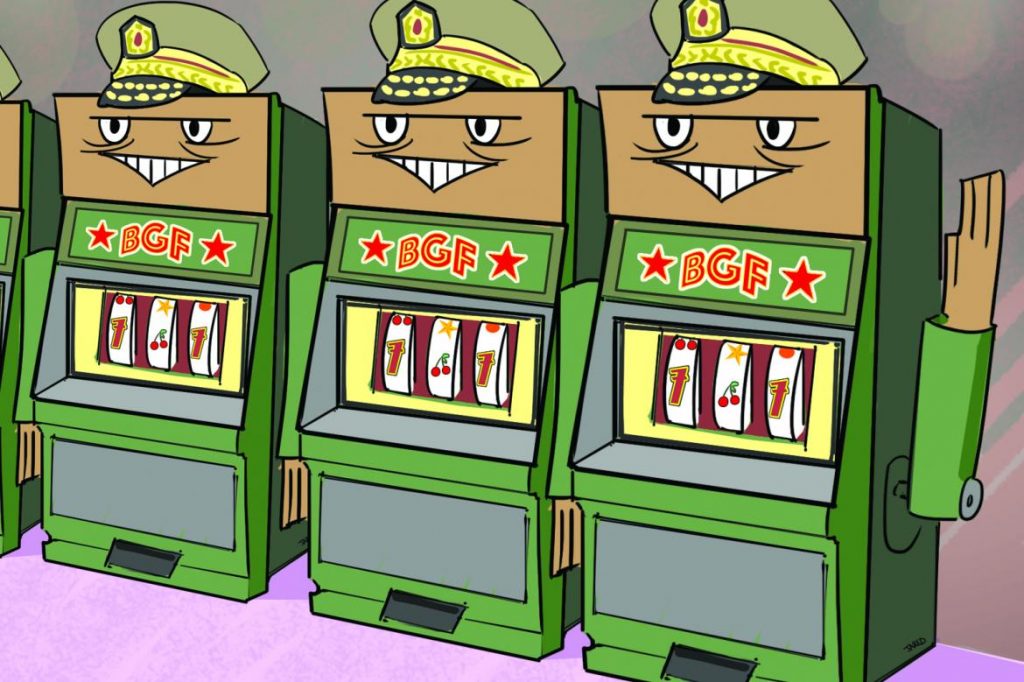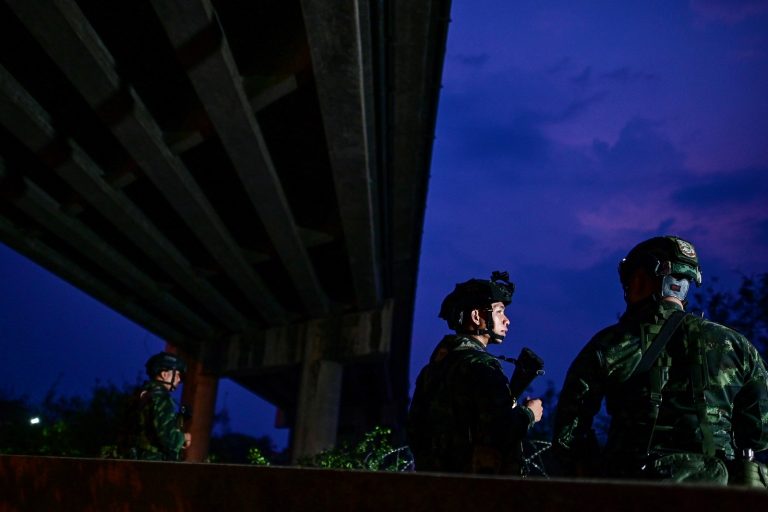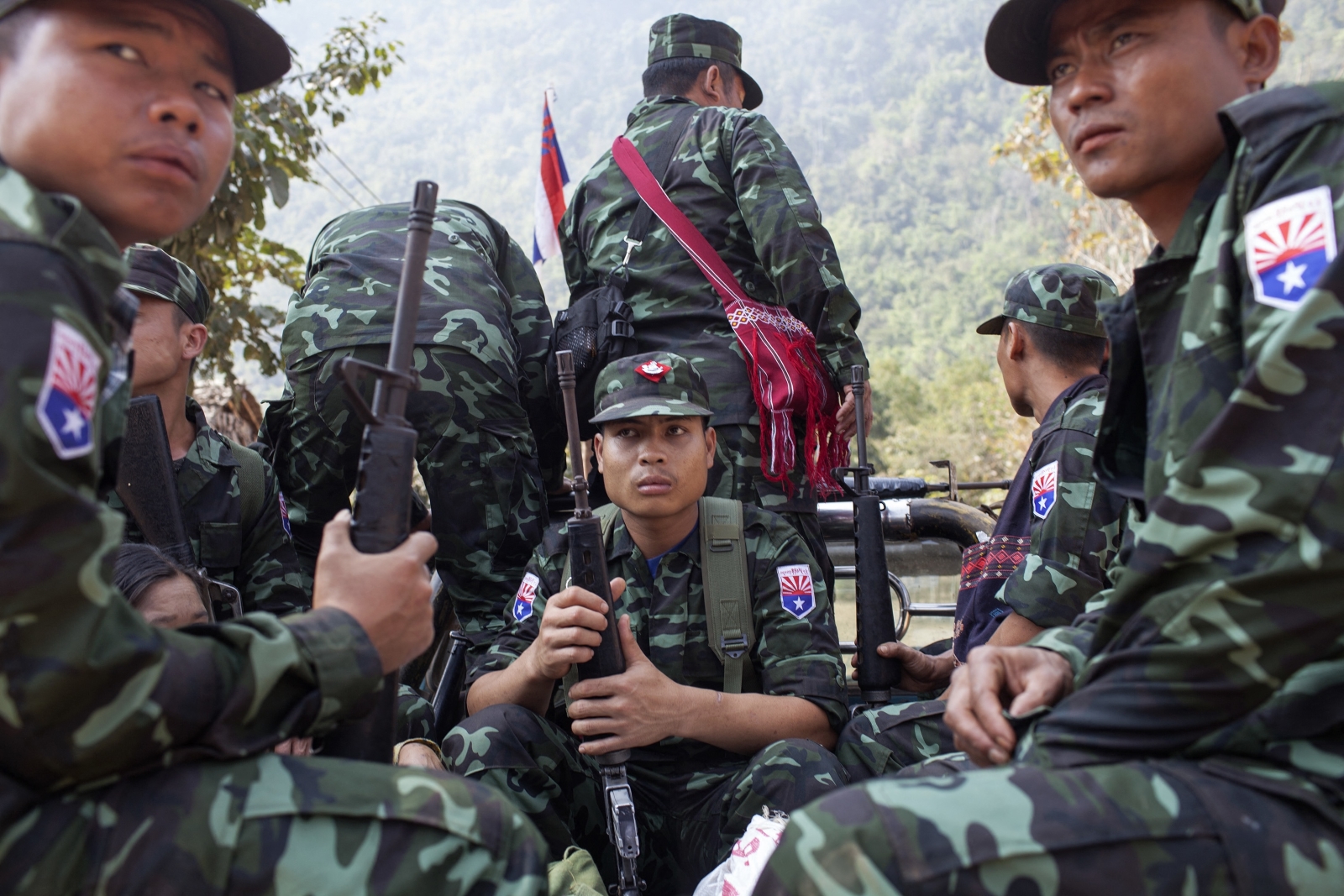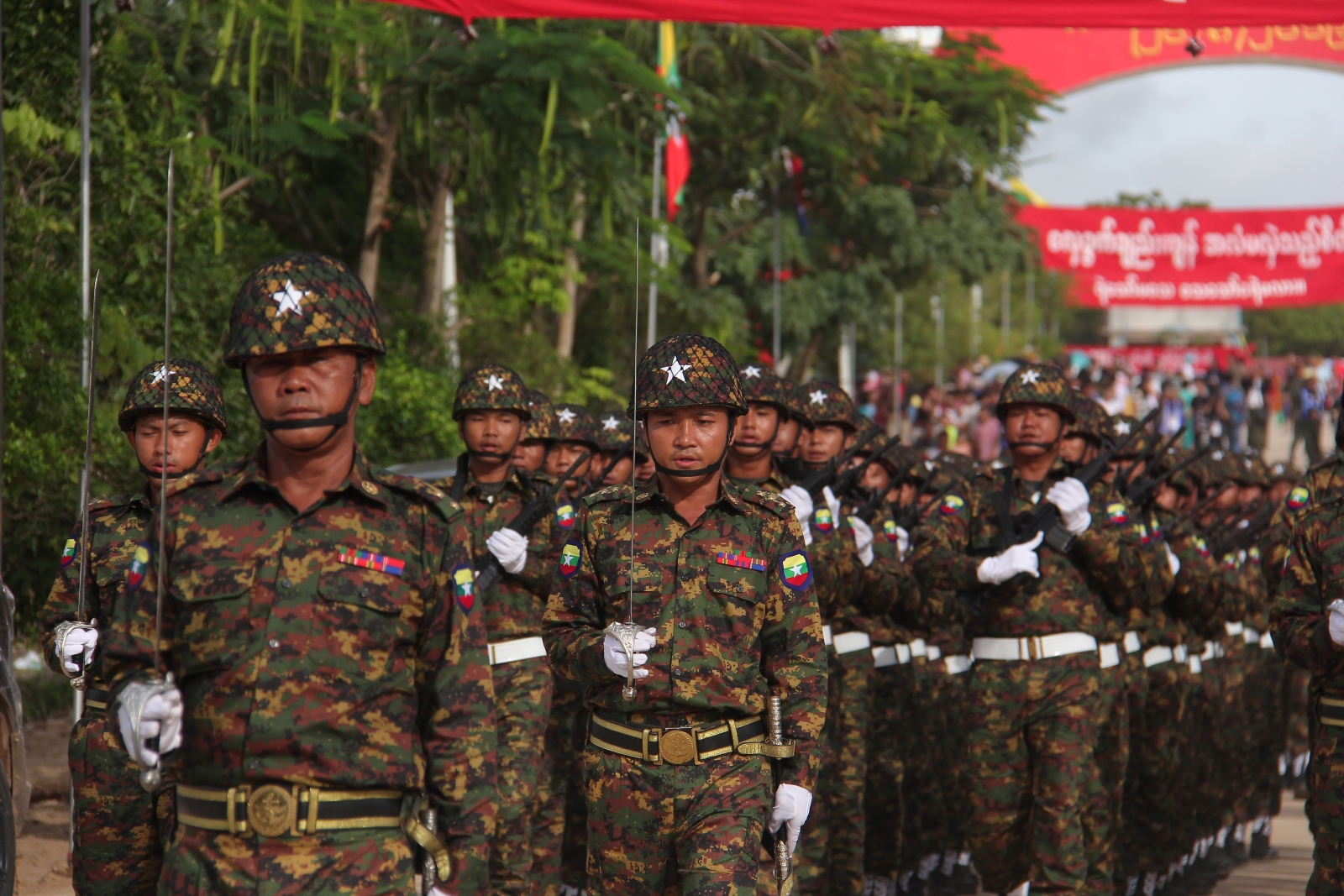“We don’t want to be evicted and threatened with weapons,” the demonstrators chanted as they marched through the Kayin State border town of Myawaddy on November 17.
The target of their anger was the Kayin State Border Guard Force, along with the Chinese investors who have allegedly acquired land through the BGF to run illegal casinos in the town, which sits across the Thaung Yin (or Moei) River from Thailand’s Mae Sot.
The alleged eviction of hundreds of Myawaddy households by a BGF officer, apparently for a new casino development, seems to have been the spark for the protest, which drew up to 500 people.
This is not the first time residents there have complained publicly about the BGF’s business dealings and the recent influx of Chinese investment and workers. Tensions have been simmering for months and the government responded by ordering that Chinese-language signs in Myawaddy be taken down, but business has largely gone on as usual on the gyar-nagar and Shan ko mee tables. The latest protest reflects the cosmetic nature of the government’s efforts.
While the casinos have not sprung up in secret, outside observers (including Frontier) have mostly focused their attention on recent developments at Shwe Kokko, the BGF headquarters about 20 kilometres north of Myawaddy.
There, the BGF and its Chinese partner, Yatai International, have proposed a US$15 billion development that would include hotels, casinos and an industrial zone. They’ve received Myanmar Investment Commission for a small portion of that – a $22.5 million housing estate – but as Frontier revealed in August, construction work has progressed far beyond this. BGF members were unapologetic about this flagrant breach of the law.
Support more independent journalism like this. Sign up to be a Frontier member.
There is good reason to be concerned about what is happening at Shwe Kokko. But for the people of Myawaddy, the problems are more immediate, and a lot closer to home, than a multi-billion-dollar project an hour’s drive away that may never actually materialise.
Their town exists in a twilight zone somewhere between state control and laissez-faire conflict capitalism. This is not Mong La or Panghsang, where the Myanmar state is absent. Government offices are dotted across town, and customs and immigration officials dutifully check cargo documents and passports. Nor is it particularly dangerous or violent.
But Myawaddy is a place where many rules are happily flouted – a place where migrant workers cross the Thaung Yin in small boats in the shadow of the Myanmar-Thailand Friendship Bridge, and cars are punted illegally across the same river in broad daylight to parking lots on the Myanmar side.
The illegal crossing of people and goods between Myanmar and Thailand is nothing new. But the casinos that have mushroomed along the Myanmar riverbank over the past five years most certainly are new. 999, Myawaddy Complex, Heng Sheng, Grand Myawaddy: these are not shadowy operations out in the jungle. You can walk into them from downtown Myawaddy and have a wager – or, if you’re a government official in Nay Pyi Taw, you could find them quickly on Google Maps. Each casino is a shiny monument to either the loss of state control, or state collusion in the illicit economy.
It may also be an illicit economy that indirectly supports the Tatmadaw. After all, locals allege that these casinos are being run in partnership with or with the support of the BGF, a collection of battalions that fall under the command of the Tatmadaw and are used to fight its battles in Kayin State.
These investors seem to be betting on the government allowing them to stay indefinitely. In May, parliament approved a Gambling Law that potentially opened the door for entrepreneurs to open legal casinos. However, the law devotes only one line to how this might happen: “The Union Government may allow the establishment and opening of casinos with specified terms.” So far, no rules have been issued publicly.
The law is also clear that Myanmar citizens will not be allowed to gamble in licensed casinos. Yet while the casinos in Myawaddy appear to target foreigners, Frontier’s recent visit revealed that many of the gamblers are actually from Myanmar. This is another common complaint in the town: that the casinos are destroying the lives of many locals.
The illegal casinos in Myawaddy should not be retroactively legalised. Doing so would only reward those who have openly broken the law, and inflicted pain and suffering on residents. The people of Myawaddy deserve better.







